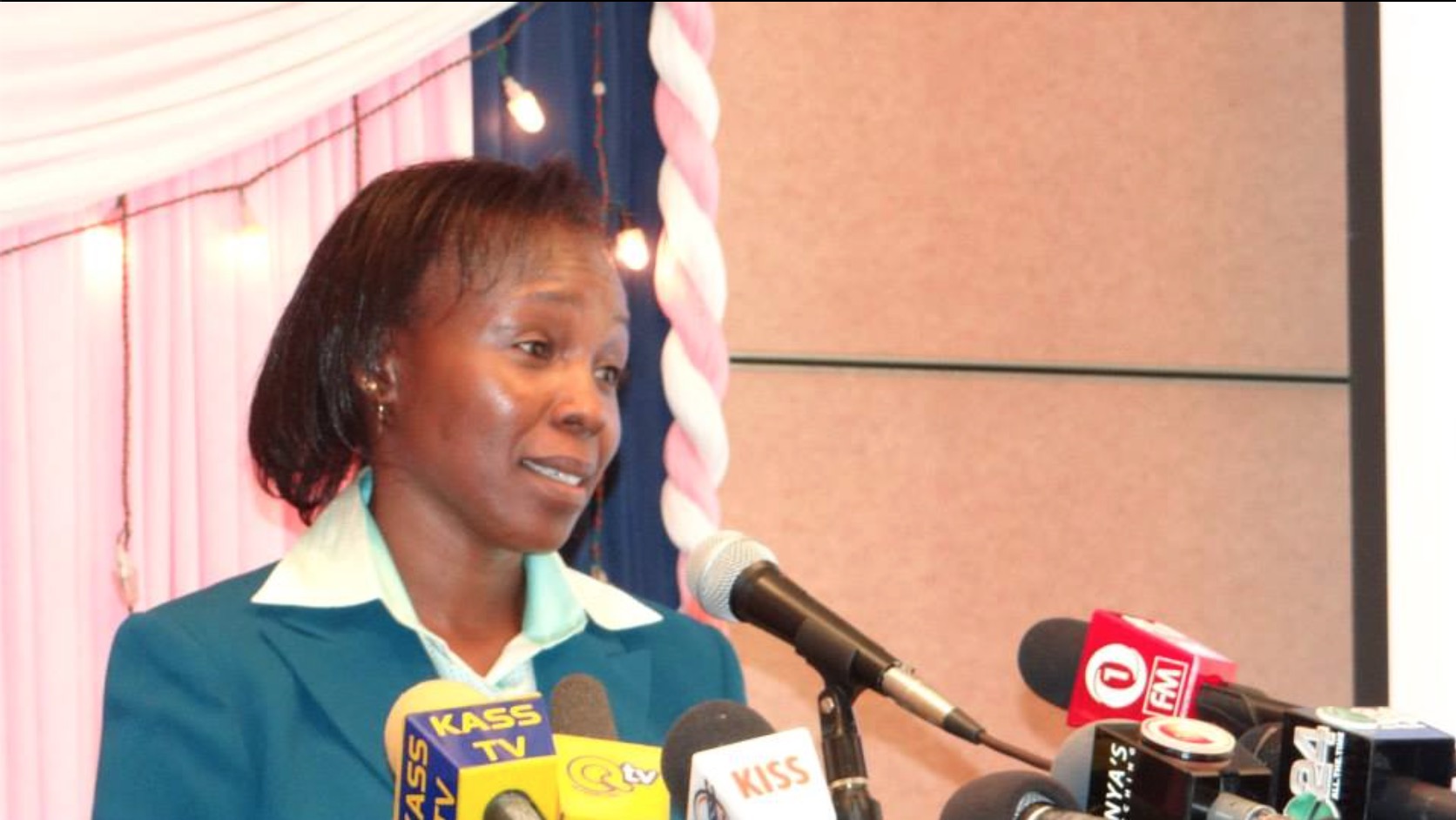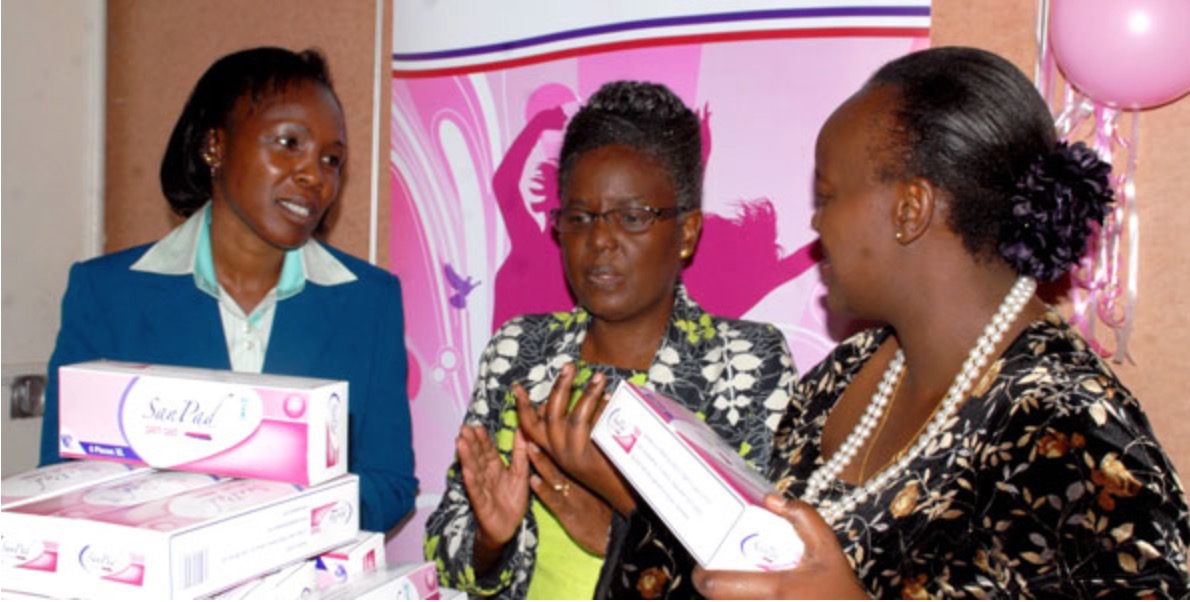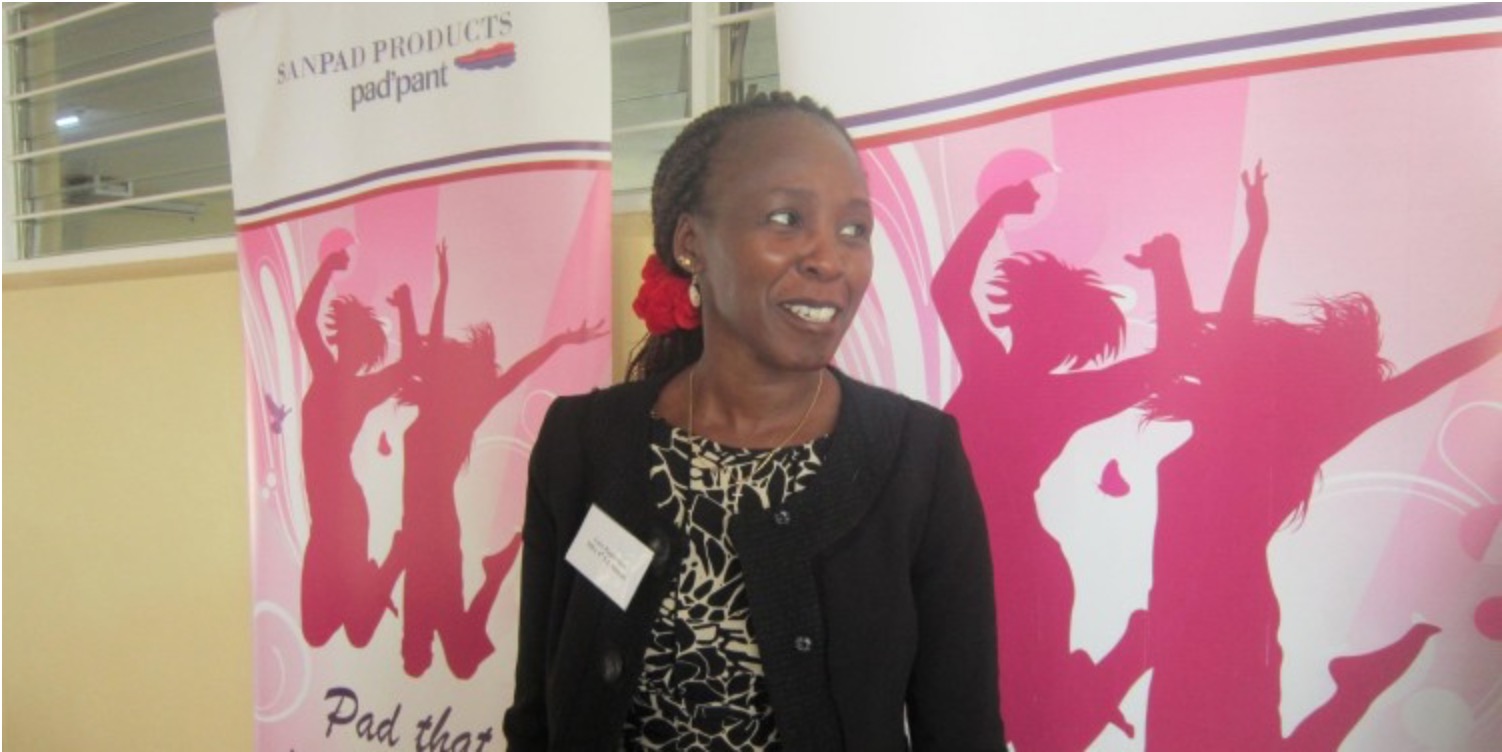Growing up in a village where young girls and women lack access to affordable and hygienic menstrual management products, causing low self esteem and inevitable absenteeism from school, inspired Kenyan socialpreneur Lucy Kapkirwok to find an innovative solution. Her company, SANPAD, was born out of that need and today provides young girls and women with a better life.
Lucy is a woman entrepreneur from Kenya, who attended the fourth edition of the Global MBA in Impact Entrepreneurship at Tangaza University College in Nairobi. This programme is run by e4impact, learn more about it here.
LoA spoke to SANPAD founder, Lucy Kapkirwok, to find out more.
What does your company do?
SANPAD is a sanitary pad-pant business, an innovative low cost initiative aimed at manufacturing affordable and accessible sanitary pads cum pants to address the needs of women and girls in resource poor settings. It aims at improving the access of women and girls to safe and hygienic menstrual management practices and simultaneously addressing women’s reproductive health needs. The pad-pant is a disposable, convenient two in one product that will be useful for women and girls in diverse development contexts. Unlike ordinary pants, the pad-pant is a one-time disposable product that does not require washing or re-use. It is safe and convenient and adds value.



"Our vision is to be the leader in disposable and innovative products for women; to make it universally accessible at an affordable price across the countries; and to manufacture the product locally."
What inspired you to start your company?
I grew up in the village where owning a panty let alone pads was a problem. The panty pad arose out of the need to address the following problems:
• For women, menstrual management is a big problem across age group and economic class.
• For young school going teenage girls, lack of access to affordable and hygienic menstrual management products is a major cause of low self-esteem and absenteeism from school. It is estimated that, in any one academic year, young girls lose a large number of school days. This contributes to poor performance and even dropping out entirely from school, with serious social and economic consequences.
• Current efforts to address this problem, such as providing free sanitary pads, do not take account of the fact that many young girls do not have pants to begin with! And those that do have them, they also need access to often scarce and unaffordable water and soap to wash stained panties. Older women in distressed situations such as in refugee camps or shanties face similar challenges: they either lack access to pads, or where these are available, they often cannot afford panties and soap and water to maintain hygiene.
• The professional or middle class women’s greatest need in menstrual management is convenience. Ordinary sanitary pads have to be worn with panties which, because of inevitable stains, require frequent and bothersome washing. Active women whose work take them to the field frequently (such as journalists and agricultural officers), or any women visiting their folks in their rural villages, often have to worry about access to adequate water for washing stained panties.
Why should anyone use your service or product?
It is unique and represents value for money because it doubles up as both panty and pad. It serves the needs of the poor, as well as the modern trendy woman who wants convenient products. So, its unique selling points are that it is unique, convenient, it’s differentiated because its a pant as well as a pad, it can be used when water is an issue, its disposable and its affordable.
"I do not come from an entrepreneurial background and it took me eight years to decide to start. I finally started 3 years ago and it has been a challenging journey with many near death experiences, but we are looking forward with great joy and optimism."
Tell us a little about your team
We have a dynamic team that is young and vibrant, together with an experienced advisory team .
Share a little about your entrepreneurial journey. And, do you come from an entrepreneurial background?
I do not come from an entrepreneurial background and it took me eight years to decide to start. I finally started 3 years ago and it has been a challenging journey with many near death experiences, but we are looking forward with great joy and optimism.
What are your future plans and aspirations for your company?
We plan to expect to start local production by 2017. We also have plans to expand our customer base into the COMESA and SADC region. Our vision is to be the leader in disposable and innovative products for women; to make it universally accessible at an affordable price across the countries; and to manufacture the product locally.
What are the objectives of Sanpad
To support women and girls especially in poverty stricken areas and marginalized areas to deal with the issue of menstruation challenges; to provide a solution to girls who miss school due to lack of sanitary towels and panties to use during menstruation; to empower women and girls especially in rural areas on efficient and proper menstrual hygiene management; to meet the needs of the modern woman on the move and also the village girl in the remote areas; to promote awareness and access to low cost and affordable sanitary padpants in schools in resource poor settings; to undertake capacity building to young girls on menstrual management and reproductive health information; and to develop and test various partnership models to meet girls’ long term sanitary needs.
#EntrepreneurAdvice: "Never give up, remain focused, seek support from like minded people, & never look back."
- Lucy Kapkirwok SANPAD Kenya
What gives you the most satisfaction being an entrepreneur?
That I can make a difference in the life of a girl, one girl at a time.
What's the biggest piece of advice you can give to other women looking to start-up?
Never give up, remain focused, seek support from like minded people, and never look back.
Contact or follow SANPAD
WEBSITE | FACEBOOK | EMAIL lkapkirwok@yahoo.com
Why LoA loves it….
Socialpreneurs such as Lucy Kapkirwok are driven by a need to make a difference in our society, and in her case she saw the lives of young girls and women in Africa being curtailed due to the lack of an affordable menstrual management solution. Today, her innovation in producing a low-cost solution to the challenge is empowering these young girls and women to take control of their lives and start to fulfil their potential. Lucy is a real game-changer. --- Melanie Hawken, founder and editor-in-chief of Lionesses of Africa





